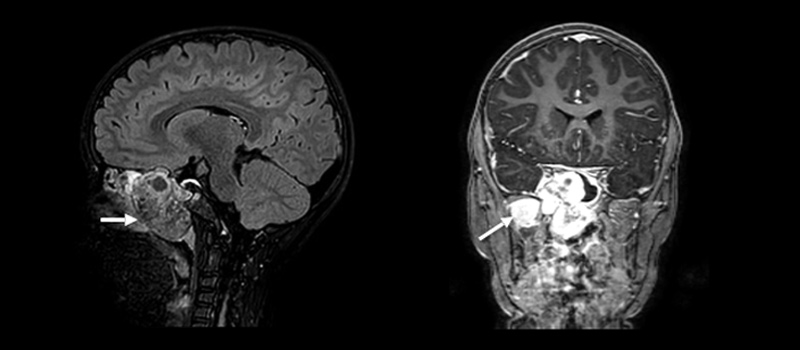-
11 October, 2022
Nasal polyposis, an underestimated disease with limited treatment options
Nasal polyposis is a chronic inflammation of the paranasal sinuses. Due to this inflammation of the mucosa, whitish formations appear inside the nostrils, which are called nasal polyps. These are benign polyps, but they can grow to the point of completely obstructing the nostrils.
-
31 March, 2021
What is the voice feminization and how is it achieved?
Voice feminization encompasses all the needed processes in order to obtain a voice with characteristics attributable to that of a woman. The processes are applied during the sexual reassignment. Voice feminization is obtained through surgical procedures and speech therapy with the help of a team of otolaryngologists and speech therapists. The voice in the transgender woman is essential to connect coherently the external appearance with her personality.
-
9 September, 2020
Ultrasonic rhinoplasty: greater precision, better recovery and aesthetic result
Ultrasonic rhinoplasty is a surgical nasal reshaping technique in which high precision ultrasonic saws and files are used. This technique has allowed greater control when shaping and cutting the nasal bones. In addition, it enables the surgeon to preserve vital structures of the nasal dorsum with the intention of obtaining natural results (preservative rhinoplasty). All this allows a better aesthetic result, a faster recovery and fewer complications in the postoperative period.
-
27 July, 2020
What are Skull Base Chordomas and what is its treatment?

Chordoma is a rare type of tumor that occurs in the bones of the skull base and spine. These tumors arise from the remnants of the notochord, a flexible, rod-like structure that provides support to the developing embryo. Chordomas are complex tumors to treat due to the involvement of critical structures such as the brainstem, spinal cord, and important nerves and arteries. About 30 percent of all chordomas are form within the center of the head in an area called the skull base – usually in a bone called the clivus. Skull base chordomas are sometimes considered brain tumors because they can grow toward the brain.
-
29 May, 2020
Loss of smell and COVID-19: What we know, symptoms, diagnosis and treatment
As most people know by now, SARS-CoV-2 is a type of coronavirus that affects people and that is responsible for COVID-19. This disease is characterized by a series of breathing problems, mostly with mild symptoms (80% of cases). Sometimes these respiratory disease symptoms are accompanied by other conditions. Specifically, recent studies suggest that up to 88% of patients with COVID-19 present a loss of smell and taste. Most of these patients (80%) will regain their senses of smell and taste on teir own, over time. For those who do not regain their sense of smell either partially or at all, there is only one option available right now: olfactory training.
-
15 April, 2019
Salivary gland tumour: Causes, symptoms, diagnosis and treatment

Salivary gland tumours are abnormal cells that grow, either in the salivary gland itself or in the ducts that drain them. Salivary glands are located around the mouth. They produce saliva, which moistens food to help us chew and swallow. Saliva also helps protect teeth from decay. Salivary gland tumours are a rare condition that are usually benign, slow growing and with a good prognosis.
-
17 January, 2019
What are skull base tumors?
The skull base is the area in between the eyes and behind the nose all the way up to the brain and spinal cord. It one of the/ or the more complex are in the whole body beacuse multiple nerves and the major blood vessels of the brain, head and neck pass through it. The skull base tumors are rare, affecting less than 1 in 100 000 people per year. They are histologically a diverse group of tumors and potentially pose significant management problems due to their close proximity to the orbit and intracranial cavity.
-
4 January, 2019
Treatment for perforated nasal septum
The perforation of the nasal septum is a medical condition in which, the cartilaginous membrane dividing the nostrils develops a hole or fissure. A perforated nasal septum may cause annoying symptoms such as nasal obstruction, mucus discharge, nasal crusts and frequent nosebleeds. It is usually a consequence of previous nasal surgeries. Not as a consequence of bad practice, but because it is one of the risks when manipulating the nasal septum. Other common causes are repeated traumatisms and cauterizations on the nasal septum and / or nasal packings in people with repeated nosebleeds (epistaxis).
Read more…










